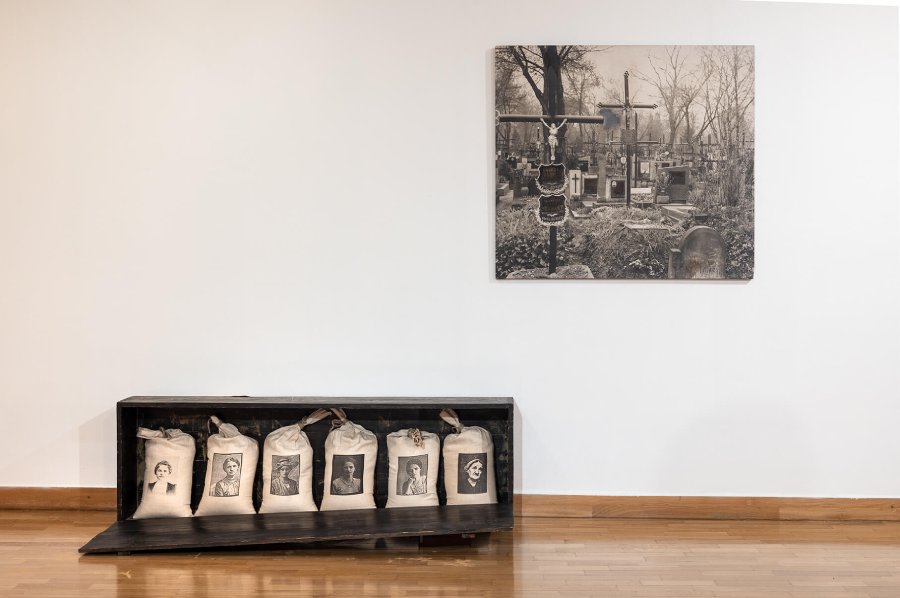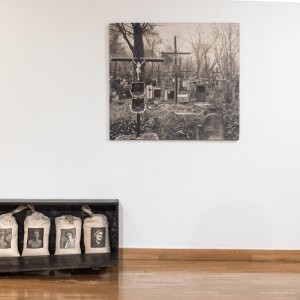Ghetto Central Europe: The gravity of context
Museum of Art Olomouc — Museum of Modern Art, Denisova 47, Olomouc
June 27, 2024 - December 29, 2024
 Tadeusz Kantor: Portrait of Mother, 1976, mixed media, photography, Kunstmuseum Bochum |
Ghetto Central Europe: The gravity of contextMuseum of Art Olomouc — Museum of Modern Art, Denisova 47, OlomoucJune 27, 2024 - December 29, 2024
Between 1972 and 1996, the Kunstmuseum in Bochum, West Germany, became an unlikely centre of Czech, Czechoslovak, and even Central European culture. The director of the institution at the time, Petr Spielmann, an art historian from a well-known Jewish Czech-German family, an emigrant by fate, a European by nature, was responsible for this. Spielmann first worked here as a curator and began to actively think about the concept of the institution, which is regional, in the true sense of the word community, yet has a global reach, under the leadership of his predecessor Peter Leo. The culmination of his efforts was the founding of the Kemnade International ‘festival of foreigners’ (1974) and the opening of the new museum building (1983), whose architects were the famous Danish Louisiana architects Vilhelm Wohlert and Jørgen Bo. The flowing space, which is not divided into exterior and interior, public and private, naturally incorporates places of study and contemplation, a library with a study room (its design, incidentally, was developed by another Central European, Terry Haass), the Forum social hall and places of active entertainment, a space that is inherently understood as creative, a legend in its own right. The collection that Spielmann and his colleagues have created here is now receiving a critical appraisal. As was the case with the first edition of the SEFO Triennial (2021), it now includes a historical probe that gives contemporary progressive work a solid foundation. And it is also the impetus for the launch of a new research and educational project that the Olomouc Museum of Art will tackle in the coming years, in preparation for the opening of the new exhibition building of the Central European Forum, designed by Jan Šépka. CEAD: New Media Museums is thus succeeded by a reflection on institutional policy and collection practice. Spielmann’s conception of Central Europe as an integral part of the European cultural tradition, the understanding of the artwork as the final ‘monument’ and the desire to develop the museum institution as an open platform, as a public space, is a stimulus for SEFO to rethink its own position and social role.
|


